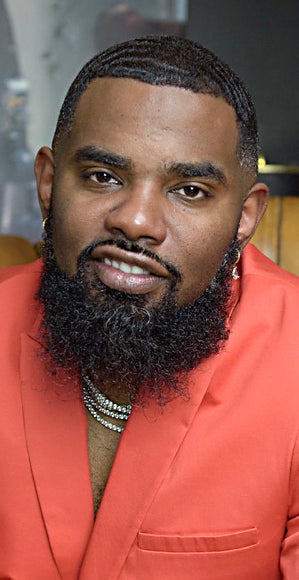Natchez Black history is lit!
Published 5:55 pm Wednesday, February 15, 2023
|
Getting your Trinity Audio player ready...
|
When it comes to black history, Natchez, Mississippi is lit — prolific, rich, bountiful. If I’d known as a kid what I know now, I might have become a historian or archivist with the singular mission of helping to curate the histories and contributions of the African descendants who’ve made Natchez home for more than 300 years
The more I dig into this history, the prouder I am to be a Black man from Natchez. And don’t get it twisted — Blacks in Natchez have been much more than slaves who passively accepted their plight. Freedom, upward mobility, and justice have always been the quest of Black people here. But I didn’t know this growing up.
In college, I read Booker T. Washington’s moving autobiography “Up From Slavery,” having no idea he laid the cornerstone at Natchez College, the local HBCU where I attended preschool in the 80s. During that visit, Dr. Washington spoke to an overflow crowd of as many whites as Blacks…in Natchez… in the early 1900s.
Many stood on Pearl Street outside the Baker Grand Theatre to hear this vanguard of Black intellectual thought — a clear indication that the slave class was not the only class of Black folk here. There’s a photo of Dr. Washington standing on the steps of Dr. John Banks’ house on Saint Catherine Street. (When your family visits, take your picture there and send me a copy. It might become historic!)
Speaking of Dr. John Banks, did you know he was Natchez’s first Black doctor and the founder of Natchez’s first Black bank, Bluff City Savings? Interestingly, John Banks is kinfolk to Charles Banks, a leader of one of the nation’s largest all-Black towns, Mound Bayou, Mississippi. Charles’ wife, Trenna Booze, was a Natchezian and Natchez College graduate. When you visit the John Banks house, look for John and Charles in the picture with Booker T. and take in their rich legacy of Black scholarship, wealth, and erudition.
I’ve been thrilled to learn that Natchez was also home to several of the country’s leading Black doctors, like Lloyd Miller, the first medical director at the state’s all-Black hospital in Yazoo City. Albert Dumas, one of Natchez’s first Black physicians who, along with Miller and others, started the Mississippi Medical and Surgical Association — the state’s largest and oldest organization representing African American health professionals. And get this — Dumas was also the President of the National Medical Association. Wow!
His family owned the Dumas Hotel here in Natchez, and his brother Dr. Henry Dumas was a prominent local pharmacist. When Madame CJ Walker — the nation’s first Black woman millionaire — visited Natchez, she was hosted by Albert and his wife Cornelia, Madame Walker recalled that “[Drs. Henry and Albert Dumas] vied with each other in showing us every courtesy and not only refused to take payment for our room and board but carriage hire, medicine, professional services and even advertising. I have never met such people before in all my life to be strangers!” Talk about Black excellence! The pharmacy building still stands along with their respective family homes and medical offices. Go see them when you can.
Several prominent Black entertainers were born in Natchez including the first Black performer at the White House, Marie Selika Williams; world-renowned singing sensation and Natchez native, Elizabeth Taylor Greenfield, who was the Beyonce of her time; Olu Dura — famed Natchez musician and father of international hip hop star Nas; Alexander O’Neal; Budd Scott; this list goes on and on.
Space won’t permit listing all the incredibly gifted professional athletes born and raised here. Even today, there are a handful of pro athletes from Natchez.
And I could go on: Prince Ibrahima, the Colored Troops, Black war nurses and caregivers, the nationally-acclaimed local Black educators, funeral directors, politicians, civil rights leaders, inventors, prominent enslaved men and women, and so on. Natchez’s Black history is rich! I hope our local educators will dig into this history and find creative ways to share it with our young scholars. I hope churches will include it in their educational curriculum. Families should plan trips to local black history sites and visit the courthouse to pull records and learn more about your family’s unique history.
Once we know who we’ve been as a people and as a community, we’ll have bolder ideas about what we can be now. Even when Black bodies were in chains, Black brains never were; our minds roamed free, filled with creativity and genius from the Almighty God — genius that continues to make Natchez what she is today! It’s so true: Look anywhere in Natchez, and you’ll see the genius of the Black people who built it. That genius is in each of us too.
Joseph Smith is founder of BlackNatchez.org, a Natchez-based nonprofit organization.





